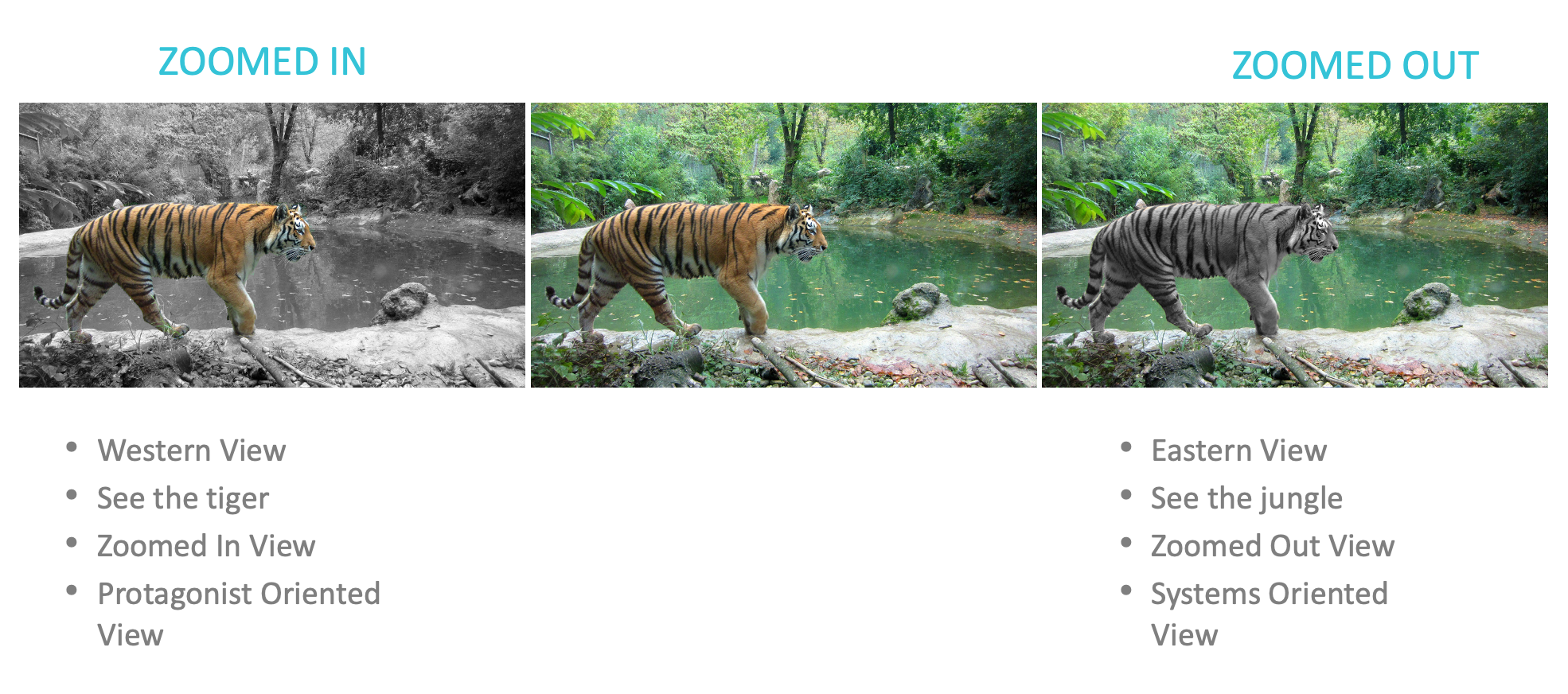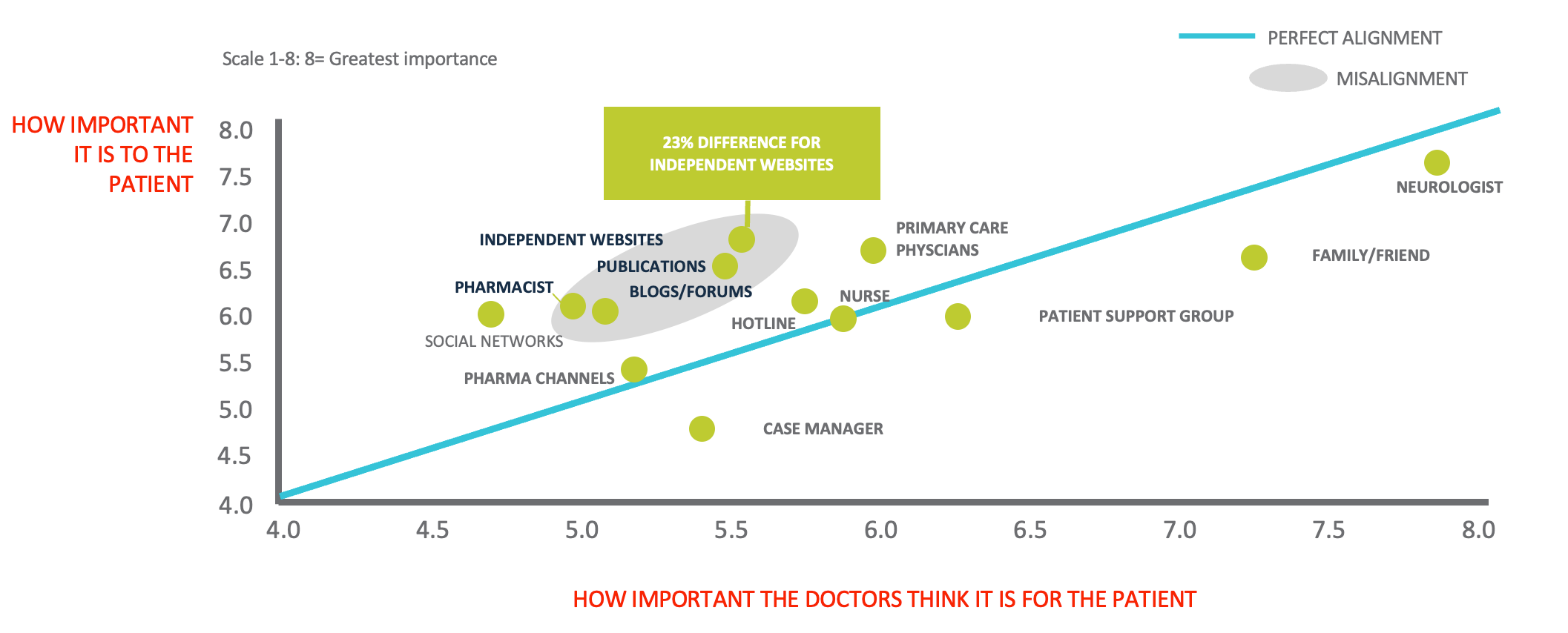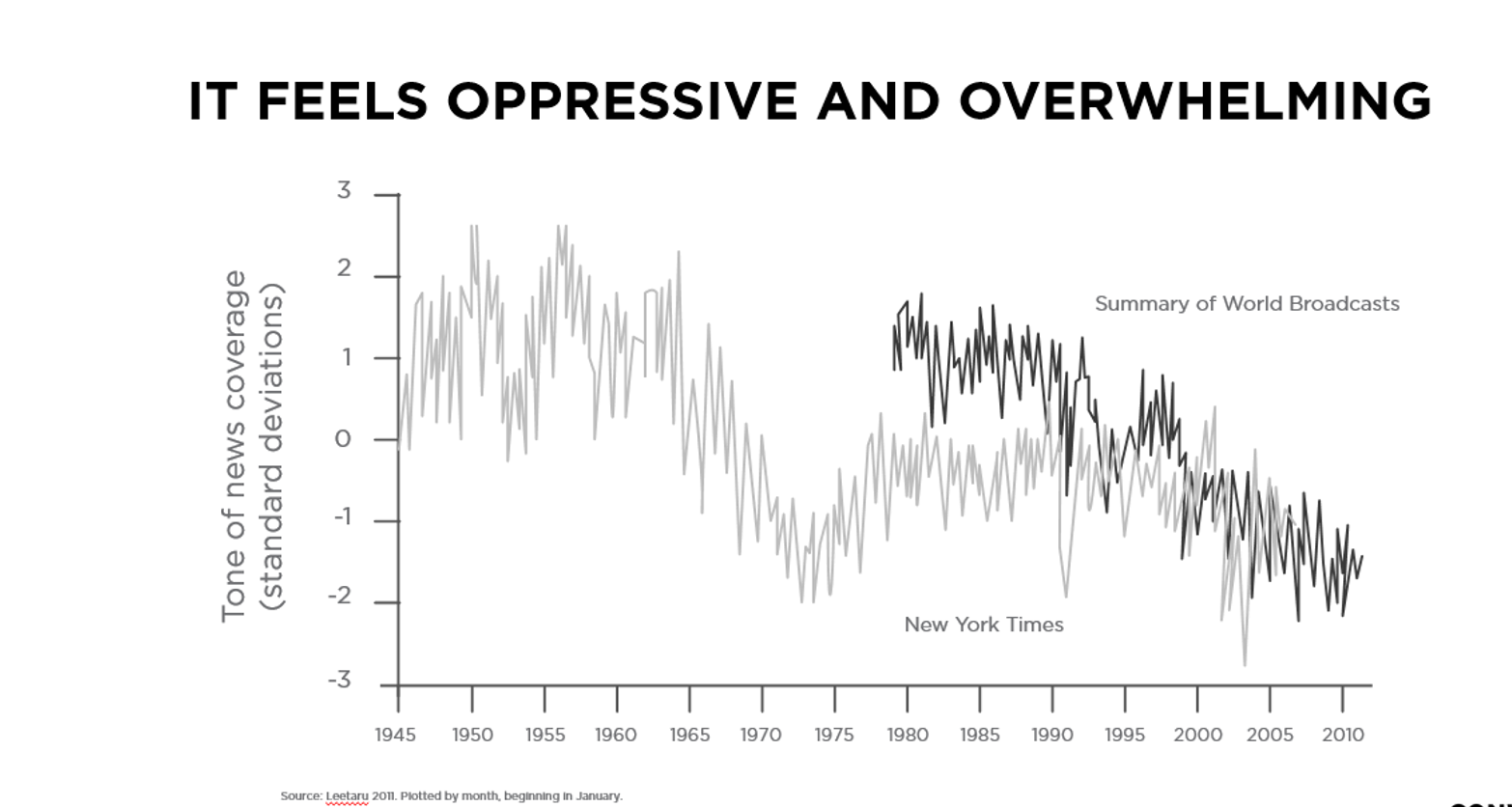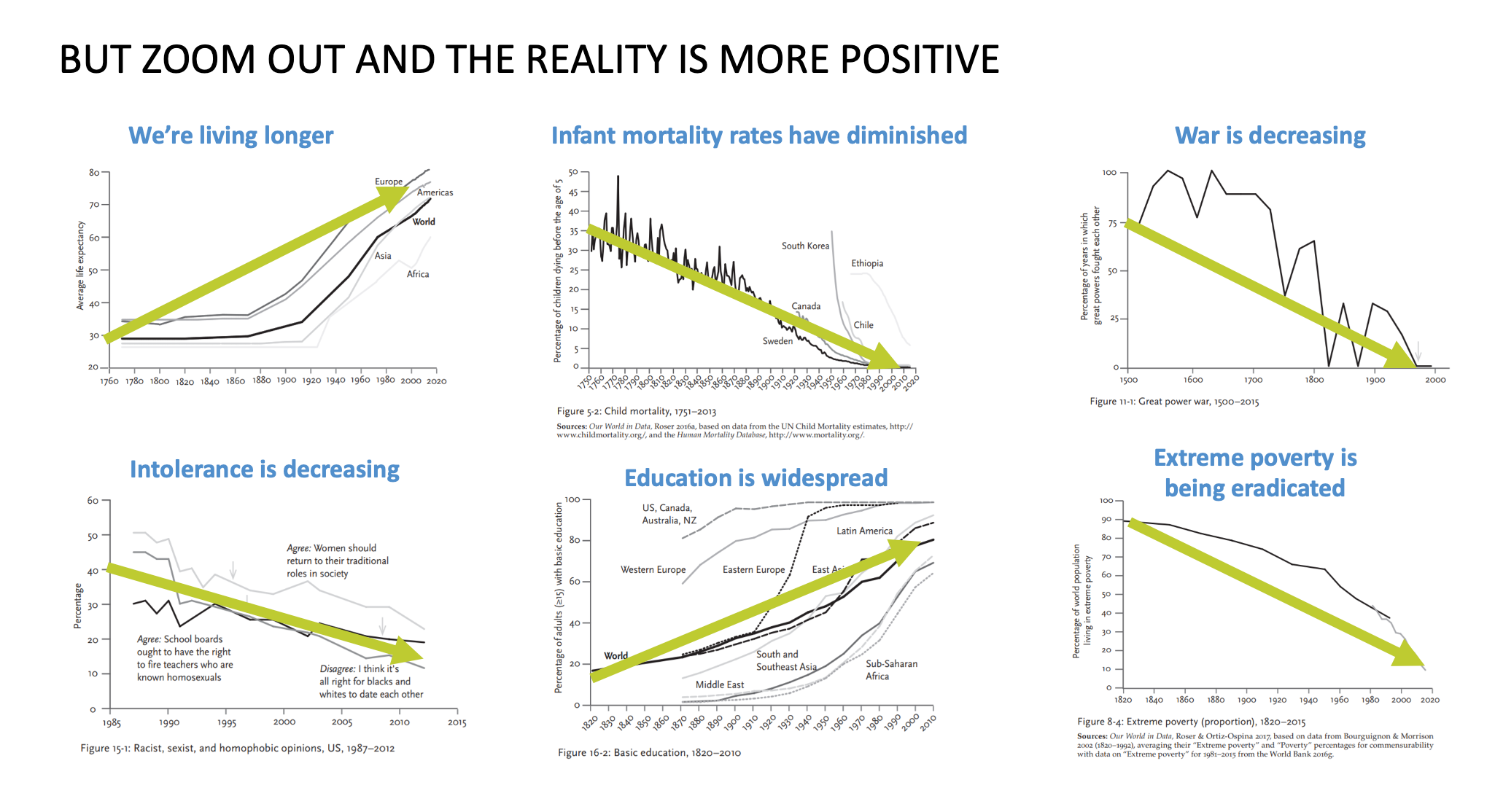Zooming out creates a perspective change, letting you view the situation in larger "chunks."
Zoom out to create commonality – Alan zooms out 100 years to reach easy agreement amongst warring tribes in Zimbabwe
Punch Reductionists in the Face:
Everywhere we are taught to see parts but the wholes have properties that the parts do not. But our best synthesizers have always intuited the whole
Seeing the Fractal Whole
Seeing this emergent gestalt is a deeper level of insight. This is basically what people are pointing to when they say “systems thinking”. To illustrate, if you ask most people to describe a bird, they will say something like: a beak, wings, feathers and it flies. This is making a feature list. But who knows things better? Someone who can describe a thing or someone who can build it? The person who can build it obviously.
Why? Because they can be said to truly understand a thing by which scientists tell us we mean they have a structural/functional form in our minds of how the whole comes together. How the thing operates. This is the original meaning of “to be informed by”.
This is the use for which Aristotle invented the phrase “informed” by. It is also what he meant when he said that to understand a thing was for one’s mind to be “in conformity with it”. To have the same shape in your mind. Scholars now realize that the way Aristotle spoke was not the way we think about thinking. He meant something scholars call Thinking/Being. Why? Because to understand a thing is not to be able to make a feature list. Cognitive scientists now believe this is the explanation of the Shaman capability who has had an outwardly-oriented flow experience. One that is not pre-occupied with self. And has “flown above” and seen deeply into the interworking of things.
“There is one discipline which ennobles the human mind more than any other, geometry” – Plato
“If you cant understand your body how can you hope to understand the world” – Taoist saying
“Know thyself. Then you can understand the universe and god” – Pythagorus
The Tigger and the Forrest: We see what we are trained to see

Alignment Between Patients & Doctors
In this example, the Dr. sees what he has been trained to see rather than the network that is there. Likewise everywhere we look in business and medicine we see silos and P&Ls around things like online and offline when what we as customers want is an integrated Experience. Everywhere we see Fractional views driven by reductionist agendas. ROE is integrative and reductionist at the same time. It has an ordered taxonomy or hierarchy - a feature of any domain – but it is uni-dimensional.

Punch Reductionists in the Face:
Everywhere we are taught to see parts but the wholes have properties that the parts do not. But our best synthesizers have always intuited the whole
The world is a falling apart? Zoom Out.
If you follow the news, it is very likely you have concluded the world is going to “hell in a handbasket”. News coverage has indeed been growing steadily more negative over time.

The chart above shows that news coverage has been growing steadily more negative over time. The summary of broadcasts which begins tracking in 1980 shows that news was on balance positive and a full standard deviation away from being neutral. By 2010 after a decades long slide we find it closer two standard deviations toward the negative. Looking at the New York Times alone, one can go back further and see that during the 40s and 50s the news was overwhelmingly positive. One can imagine wartime propaganda films and stories of how everyone was contributing. Things take a turn for the worse in the 6os and bottom out with Watergate. After some recovery we see the long slide continue.
The Zoomed Out View: Step out of your Storybox and into the Data.
If you follow the data on nearly every human dimension life has improved dramatically over this same period. (Hans Rosling site).

As Steven Pinker has pointed out the reason for the discrepancy between the news and what is actually happening and our overall narrative is that the news reports on the exceptions. In the words of Pinker “there is no news story written on all the wars that aren’t happening today”. In addition, journalism doesn’t tend to cover things that happen slowly and incrementally over time - which is essentially how progress advances.
In addition, news biases towards the negative and sensational for this simple fact that “fire!” or “tiger!” garners more attention than “look at the beautiful sunset”. Regardless of the reason, the important point is how liberating it feels to zoom out and look at the data over a long period of time. A new sense of freedom and possibility arises.
.png?height=120&name=Panarchy_logo_horizontal_transparent-1%20(1).png)